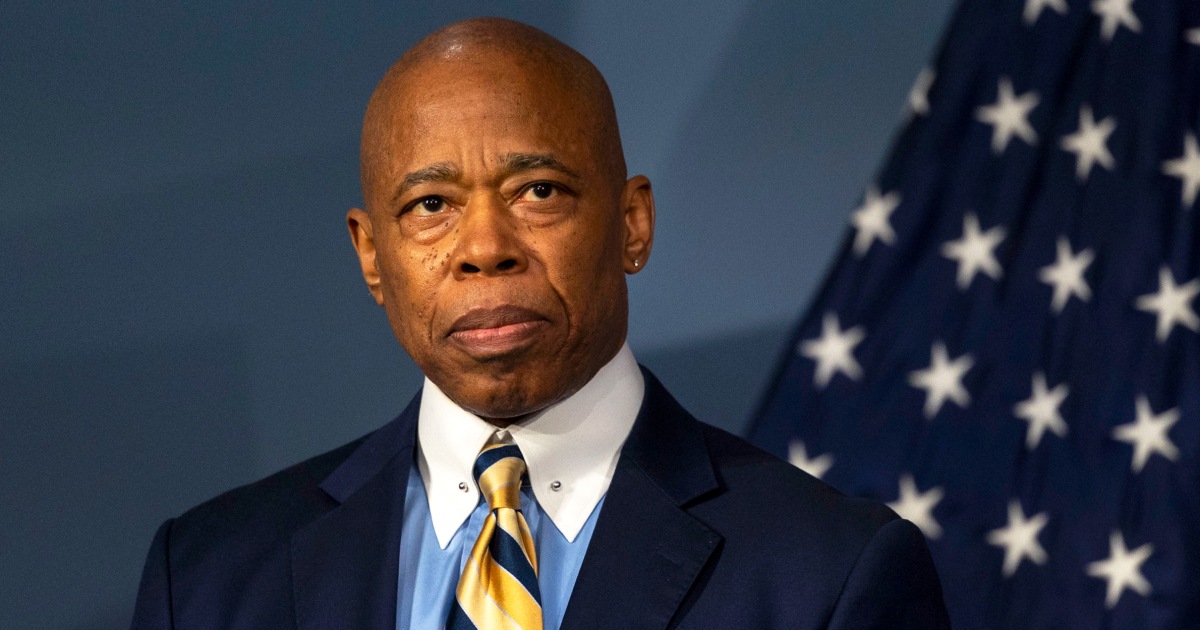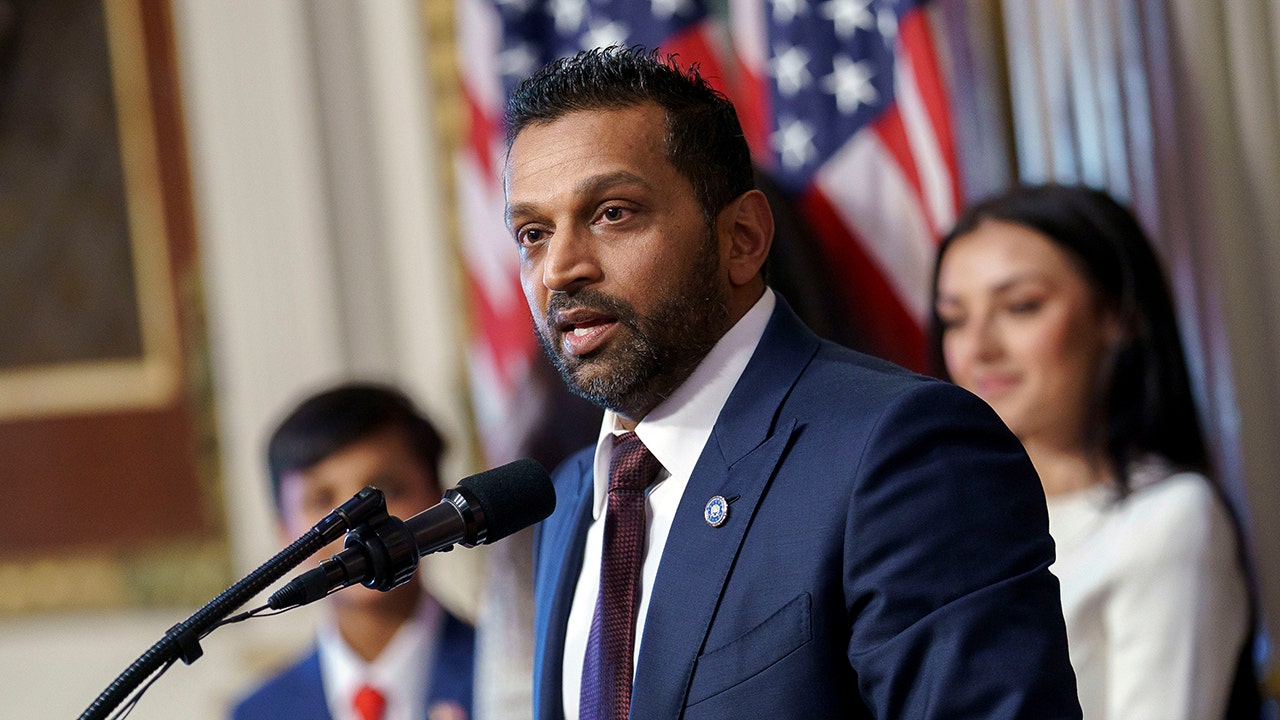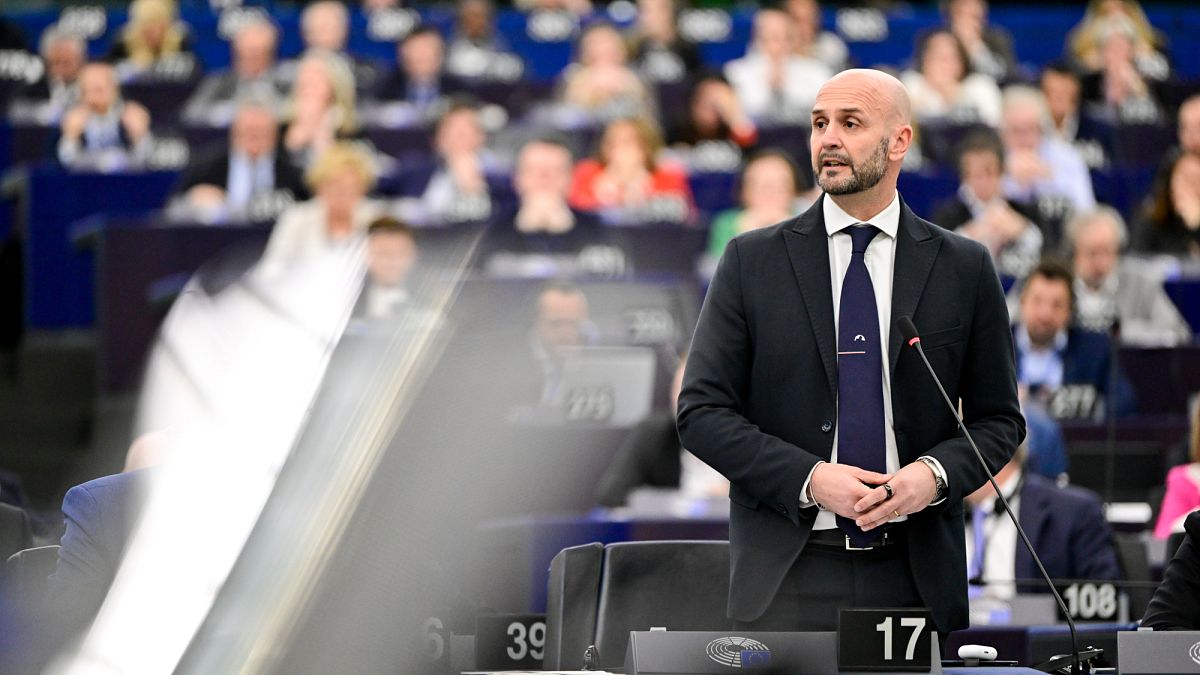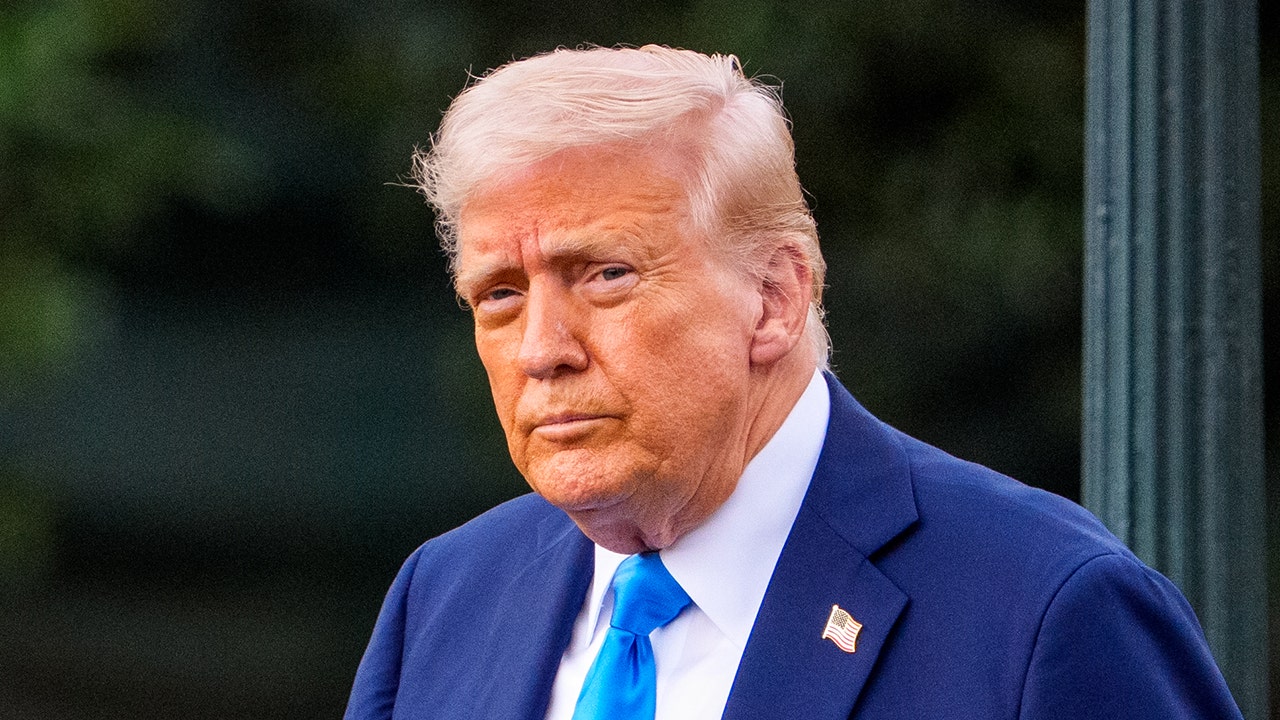Finance
Finance expert discusses why women should be involved in finances
/cloudfront-us-east-1.images.arcpublishing.com/gray/FEIU5SCDXVBCPOEPRNVTNGC22M.jpg)
SHREVEPORT, La. (KSLA) – When it’s time to crack open the checkbook and pay those monthly bills, nearly two-thirds of households report that women are the ones that are likely to take charge in balancing the budget.
On Wednesday, May 10, KSLA was joined by Jennifer Delcomyn with Evans Financial Group to break down why women should be in the know and help make financial decisions. Some of those reasons include:
- Financial independence
- Financial literacy
- Narrowing the gender wealth gap
Copyright 2023 KSLA. All rights reserved.

Finance
Understanding the Basics of 21st-Century Finance Capitalism

It has been a tumultuous week for the stock market, as Donald Trump’s quest to reshape the global capitalist order has sent investors into a frenzy. Where is all of this headed? Who knows. But going into a possible trade war, it’s worth stepping back to reflect upon the shape of our financial system.
To start: What are the most important developments on Wall Street in recent years? The short answer: massive asset managers — above all, the “Big Three” of BlackRock, Vanguard, and State Street — have become the dominant players in the financial system and the economy more broadly.
What do the Big Three do? They provide a basic financial service to investors: in exchange for a fee, asset managers invest their clients’ money in financial markets, for the most part in the stock market, or “public equities.” That sounds innocuous enough — until one understands just how much money we’re talking about.
Take BlackRock. By the end of 2024, this single firm possessed $11.5 trillion in assets under management (AUM). Adding in Vanguard and State Street, the Big Three together manage more than $26 trillion.
What does that amount of money look like in practical terms? Collectively, the Big Three are either the largest or second-largest shareholder of almost every company listed on the S&P 500 — which is to say, of the biggest corporations of the world. On average, they together control more than 20 percent of each of those companies: 25 percent of Chevron, 21 percent of Costco, 20 percent of General Motors, and so on. Not since large banks dominated the United States and German economies in the late-nineteenth and early twentieth centuries have we seen such a fusion of ownership and control of corporations on a scale that warrants the moniker “finance capital.”
Meanwhile, “alternative asset managers” have also grown at a rapid clip in recent decades. Alternative asset management is a broad category that includes private equity, real estate investment, hedge funds, and more. Blackstone, the largest alternative asset manager, now oversees more than $1 trillion.
While not operating on the scale of the Big Three, alternative asset managers collect much higher fees per dollar of AUM and play an important role in modern capitalism. Since the leveraged buyout boom of the 1980s, the threat of being acquired by alternative asset managers like private equity firms has enforced discipline on corporations. This, in turn, reinforces the power of shareholders, including the Big Three. More recently, alternative asset managers have expanded further into infrastructure (e.g., airports, utilities, pipelines), a move that threatens to further privatize public goods. They have also built on “private credit” arms, which enable them to function like banks but without the same regulatory oversight.
Complicating our picture, BlackRock has engaged in a series of acquisitions (Global Infrastructure Partners, HPS Investment Partners, and Preqin) and has even attempted to purchase the firm that operates the Panama Canal. To the extent that this represents an intention among the Big Three to expand beyond publicly traded markets and to establish a greater presence in alternative asset management, their power may well grow still further.
There is a lot of debate about what all of this means, but most observers agree on three basic features of the new finance capital that impact corporate governance.
First, for certain asset managers, “exit” from any given company that they are invested in is not an option. In the past, investors dissatisfied with the performance of a company simply sold or threatened to sell their shares. The Big Three do not have that luxury. Given the scale of their positions, dumping shares would have adverse effects on the entire market; this, in turn, would hurt their overall portfolios. Among the key products they offer investors are cross-market index funds, which by design include just about every company.
Second, for the Big Three, their index funds — mutual funds and exchange traded funds (ETFs), which provide investors with access to the entire market in one swoop — are part of a “passive investment strategy” among asset managers. These firms do not actively try to “beat the market” or bet on winners and against losers. Instead, they are committed to holding the widest range of assets for the long run.
Finally, both of these previous points result from the status of the Big Three as “universal owners,” meaning they almost literally own a bit of everything. Because of their exposure to the entire publicly traded market, and because they operate on a fee-based model, asset managers have an interest in seeing share prices continually appreciate in value. For them, the function of the stock market is not to raise capital that specific businesses can use to expand investments in their companies. Rather, it is simply to enlarge the wealth of investors.
Labor in the United States initially responded to finance’s rise by attempting to ride the wave of shareholder primacy, using its growing pension funds to speak as shareholders, filing shareholder proposals, and using other corporate governance mechanisms in the hope of nudging corporations to act responsibly. Over time, unions and other social movements have also sought to engage with larger pools of capital like public pensions, and the asset management industry, with similar goals in mind.
The logic behind this approach is that pension funds, in particular, represent “workers’ capital.” These funds should not, therefore, undertake investments that actively harm the workers whose interests they were established to serve. For instance, it is not hard to see the irrationality of public pension funds — whose beneficiaries are public employees — choosing to invest in firms actively seeking to privatize public goods.
This workers’ capital movement has been part of the broader effort to instill environmental, social, and governance (ESG) principles in institutional investors’ fiduciary calculations. While ESG has become a lightning rod for the political right, the basic idea is hardly radical. Everything from rising sea levels to executive compensation to the threat of strikes introduce risks that investors ought to keep in mind. Over the years, organizers have successfully pushed certain institutional investors to operationalize their ESG frameworks by reducing investments in industries like fossil fuels and tobacco, and working with asset managers to resolve labor disputes at companies held in their portfolios.
Without diminishing the value of these efforts, it is important to stress that the workers’ capital and broader ESG strategies basically take the structural confines of the new finance capital as a given. The problem, however, is that this financial colossus is profoundly and unavoidably integrated with processes that drive exploitation, ecological degradation, and public sector retrenchment.
This is not to say that this is a uniquely “parasitic” system that profits at the expense of the “real economy.” It is true that the incredible growth in Wall Street’s power over the past generation has come to some degree at the expense of authority of individual businesses. But finance’s ability to enforce discipline on the corporation has also strengthened management’s hand over labor. Wall Street and Main Street are inextricably wound up together.
Labor and other social movements have related to the new finance capital in a manner similar to that of the proverbial frog in a boiling pot: picking up small victories here and there while the water gets even hotter. Building the kind of working-class power that stands a chance at meaningfully improving living standards and preserving the planet will require a far more serious reckoning with the structure of ownership and control in the twenty-first-century capitalist economy. There is no easy way out of this mess other than breaking the cycle that got us here in the first place.
Finance
UK Finance Minister to Call for Defence Spending Cooperation at EU Meeting
Finance
Blockchain: The Operating System For Global Finance

Block chain network technology
getty
Blockchain infrastructure ↔ Traditional finance
Digital assets ↔ Real-world usage
Startups and protocols ↔ Institutional systems
In November 2024, while crypto headlines fixated on volatility, the European Investment Bank (EIB) issued a €100 million digital bond on HSBC’s Orion platform—settling the same day using wholesale central bank digital currency (wCBDC) tokens issued by the Banque de France. Days later, Goldman Sachs announced plans to spin out its GS DAP® blockchain platform into an industry-owned utility. Neither event made headlines, yet both signal a profound shift in global finance. These aren’t innovation lab pilots—they’re strategic moves by financial titans rebuilding the core infrastructure powering traditional finance. Blockchain isn’t disrupting Wall Street; it’s becoming its operating system. While headlines obsess over Bitcoin, the real shift is happening quietly. Institutions are laying tracks beneath the surface—moving trillions, settling trades, and weaving decentralization into the foundations of financial infrastructure.
This is about the mechanics of how money moves—legacy systems controlled by intermediaries, burdened by high costs and delays, or blockchain rails enabling direct, peer-to-peer, atomic settlement. By embedding itself into the plumbing of global finance, blockchain is rewiring the system from within—driving the most significant transformation since electronic trading replaced floor brokers. Just as cloud computing became the invisible backbone of digital ecosystems, blockchain is rapidly becoming the core of global finance.
That transformation is already shaping tomorrow’s winners and losers. Whether you’re investing, leading a company, or building financial products, understanding the ecosystem is essential to smart decision-making. It comes down to grasping how these once-separate worlds are converging—and recognizing the key players making it all work. This isn’t theoretical. It’s actively reshaping competitive dynamics, creating new opportunities, and rendering old models obsolete.
The Institutional Shift: From Resistance to Adoption
Once dismissed as speculative, blockchain is now a strategic priority for institutions like JPMorgan, BlackRock, and Goldman Sachs. Blockchain is quietly reengineering a financial system that supports more than $100 trillion in global capital markets and moves trillions daily. The shift has been deliberate and strategic—years in the making, but now rapidly gaining traction. What was once seen as a fringe experiment is now deeply embedded in traditional financial infrastructure. Institutions are embracing blockchain not for speculation but for cost savings through improved efficiency—streamlining operations, eliminating intermediaries through peer-to-peer (P2P) transactions, and enabling atomic settlement. JPMorgan moves trillions via JPM Coin. BlackRock issues Bitcoin ETFs and integrates blockchain into its $10 trillion portfolio infrastructure. Goldman Sachs, once cautious, is now leaning in—expanding its digital assets desk and signaling that blockchain isn’t a side bet; it’s part of the long game. And rather than being sidelined, Visa and Mastercard are weaving blockchain into their payment systems—Visa alone processed billions of dollars in crypto transactions in 2024. This isn’t capitulation—it’s evolution. These giants are using blockchain to streamline systems, improve liquidity, and boost transparency.
Still, some of the most transformative innovations are coming from agile startups—solving inefficiencies in payments, trading, and consumer incentives. The companies mentioned illustrate broader trends, not endorsements or prescribed winners. They offer a glimpse into a larger shift—one driven by thousands of startups, protocols, and infrastructure providers reshaping the foundation of global finance.
The Modular Architecture of the New Financial Stack
Unlike traditional finance’s siloed systems, blockchain is built for composability—where financial applications plug into one another like Lego bricks, driving rapid innovation and more connected services. This modular architecture enables developers to stack functions—trading, lending, staking, identity, settlement—into seamless user experiences. It’s most visible in DeFi, where protocols like Aave, Uniswap, and Lido integrate natively, accelerating innovation without the friction of closed systems. But composability extends beyond DeFi. As tokenized assets, on-chain identity, and payment networks evolve, the same plug-and-play architecture is beginning to reshape how institutions build and deploy financial products and infrastructure.
Composability doesn’t just speed up product cycles—it unlocks entirely new value chains. A lending app can tap into yield protocols or tokenized collateral instantly—without the bottlenecks of backend integrations or clearinghouse approvals. In this emerging financial stack, the winners aren’t just fast—they’re interoperable.
Concept of mobile payments. Wallet connected with mobile phone.
getty
Crypto’s Payment Bridge
The structural limitations of crypto as a medium of real-world payment have long hindered its adoption. Digital assets remained siloed in wallets and exchanges, cut off from everyday financial systems. But that barrier is starting to break down—not by replacing payment giants, but by building infrastructure that bridges the two worlds. In fact, payment giants like Mastercard and Visa have accelerator programs focused on integrating targeted crypto solutions that can plug into existing systems, creating corridors between traditional and decentralized financial systems.
Hong Kong-based Aurum exemplifies this approach, enabling users to fund accounts with USDT and spend in local currencies. Its ecosystem offers bots, payment cards, staking, NFT licenses, and a Web3 wallet with low fees and cashback rewards. With $12M in funding, Aurum delivers institutional-grade trading and payment infrastructure powered by advanced AI, complementing traditional financial networks. Former Binance executive Bryan Benson now leads Aurum Exchange, bringing expertise in scaling crypto platforms across emerging markets.
The endgame? A world where crypto wallets function seamlessly with traditional payment systems, making digital assets as spendable as cash—without friction.
Trading’s Transparency Upgrade
For decades, financial markets have been plagued by opacity, insider advantages, and inefficiencies. The blockchain era is changing that dynamic. Institutions like State Street ($43T AUM) and BNY Mellon ($46.7T in assets under custody), with their extensive trading operations and market influence, are already implementing blockchain-based trade settlement solutions, ensuring real-time transaction verification and eliminating counterparty risks.
In the retail trading landscape, Spotware’s cTrader stands as a notable example of transparency while delivering sophisticated trading infrastructure. Built on its Traders First™ principles, cTrader aims to establish high standards for fairness, transparency, and security—tackling long-standing industry challenges and helping to level the playing field for all participants. The platform’s technology handles millions of transactions daily, connecting over 8 million traders and more than 250 brokers and prop firms to global markets.
Specialized infrastructure providers power this shift—the hidden backbone behind evolving trading systems. These providers don’t serve end users directly—they power those who do, underpinning the next generation of financial infrastructure. Fireblocks secures over $4 trillion in digital assets for institutions, ensuring transparent custody and seamless settlement. Chainlink delivers tamper-proof price data to more than 1,900 projects, forming the foundation of reliable price discovery. Circle’s USDC moves across exchanges, wallets, and payment systems, enabling instant, transparent fund transfers. Together, these firms are becoming the “essential middleware” layer of global finance—quietly powering billions in daily activity.
Beyond efficiency, blockchain is redefining who gets to participate in wealth creation.
Democratized Investment: Blockchain’s Bridge to Real-World Assets
Blockchain’s most powerful shift may be this: turning real-world value into liquid, on-chain capital—making static assets move, trade, and work for more people than ever before.
Tokenization is fast becoming the gateway to unlocking trillions in dormant capital. By converting assets like treasury bills, real estate, and private credit into blockchain-based tokens, platforms are transforming illiquid markets into accessible, tradable units. The impact? Fractional ownership, 24/7 settlement, and borderless access.
Major asset managers such as Franklin Templeton, BlackRock, Goldman Sachs, and HSBC are leading this transformation by developing tokenized investment products. Their participation lends institutional credibility to this emerging market, much like ETFs did for equities decades ago. Similarly, financial institutions like JPMorgan and State Street are laying the groundwork to bring traditional assets on-chain, recognizing tokenization’s far-reaching benefits.
Tokenized assets are projected to reach $2 trillion by 2030, led by cash deposits, bonds, mutual funds, and loans. Their appeal? Mobility, real-time settlement, programmability, and transparency—infused into markets once defined by slow processes, siloed systems, and rigid structures.
8lends by Maclear exemplifies this trend, offering USDC-backed loans to vetted businesses, making passive investing more accessible. Their platform combines blockchain transparency with the familiarity of traditional finance, eliminating cumbersome procedures and accreditation requirements. Smart contracts automate the entire process, delivering predictable returns with complete on-chain visibility.
This represents a foundational shift in financial infrastructure. Tokenization is not only expanding access to investment opportunities—it’s reducing friction, unlocking liquidity, and streamlining capital flows across the global economy.
The New Financial Operating System
The future of finance won’t be defined by crypto replacing banks or banks neutralizing crypto. It will emerge at their intersection—where the trust, scale, and regulatory expertise of traditional institutions fuse with the transparency, efficiency, and programmability of blockchain technology. The boundary between these worlds isn’t just blurring—it’s beginning to vanish.
Like the internet before it, blockchain is gradually disappearing into the background—becoming the invisible rails on which global finance runs. The future of money is being written in code. The biggest winners won’t be those who merely accumulate tokens—but those who understand blockchain as foundational infrastructure. As blockchain dissolves into the conduits of global finance, it’s becoming the architecture through which value will move, scale, and settle in the decade ahead.
-

 News1 week ago
News1 week agoSupreme Court Rules Against Makers of Flavored Vapes Popular With Teens
-

 News1 week ago
News1 week agoNYC Mayor Eric Adams' corruption case is dismissed
-

 Technology1 week ago
Technology1 week agoHere’s how you can preorder the Nintendo Switch 2 (or try to)
-

 News1 week ago
News1 week agoTrump to Pick Ohio Solicitor General, T. Elliot Gaiser, for Justice Dept. Legal Post
-

 Sports1 week ago
Sports1 week agoDeion Sanders defied doubters and returns to Colorado with a $10M per year deal. What’s next?
-

 World1 week ago
World1 week ago‘A historic moment’: Donald Trump unveils sweeping ‘reciprocal’ tariffs
-

 Politics1 week ago
Politics1 week agoFBI flooded with record number of new agent applications in Kash Patel's first month leading bureau
-

 World1 week ago
World1 week agoCommission denies singling out NGOs in green funding row



















